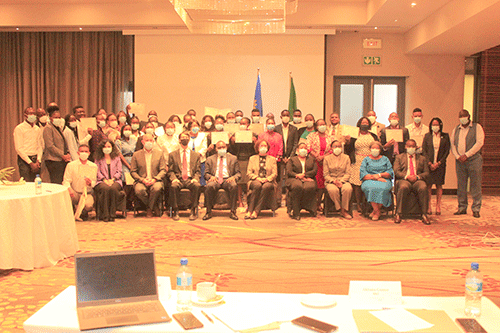Rose-Mary Haufiku
The ministry needs a skilled public health workforce to identify or detect, investigate and implement appropriate control measures timely, health deputy minister Utjiua Muinjanguae has said.
She was speaking recently during the certificate hand over to 27 trainees, who completed the frontline course on Field Epidemiology Laboratory Training Programme (FELTP) from January until March.
“This knowledge and skills are needed now more than ever as we continue responding to the Covid-19 pandemic,” Muinjanguae remarked.
The programme addresses issues related to the development of competencies and skills to strengthen public health interventions such as outbreak investigations, disease surveillance and data management, including data quality audits for the cadres at facility and district levels.
She further said the Covid-19 pandemic is equal to health threats like typhoid and scabies; thus, the capacity of the FELTP programme will come in handy to support the health systems and address these issues head-on.
The trainees are part of the sixth cohort that received in-service training from the health ministry.
FELTP was designed for public health workers from all levels that are actively involved in surveillance work – and in general, safeguard the wellbeing of the nation.
The programme was initiated by the health ministry in partnership with the World Health Organisation, the Centres for Disease Control and Prevention, the African Field Epidemiology Network, and the Robert Koch Institute with reasons to address issues related to the development of the health system.
One of the 27 trainees Albertus Naobeb, whose research was based on scabies in the Omaheke region, said he was proud of himself for graduating, and that his work was chosen to be presented at the ceremony.
Naobeb urged people to take good care of themselves, considering the recent outbreak of scabies.



